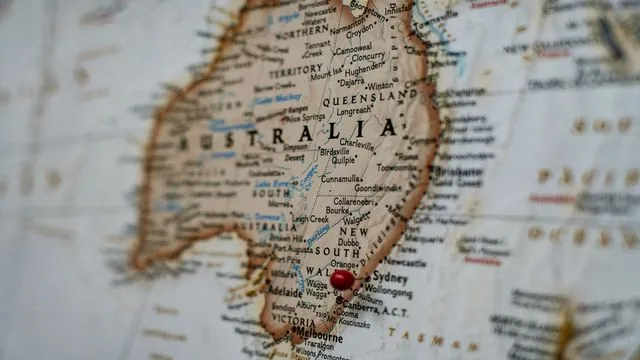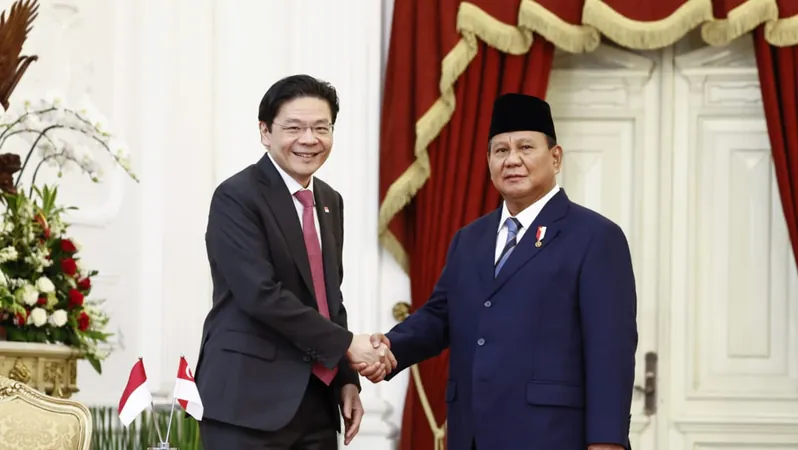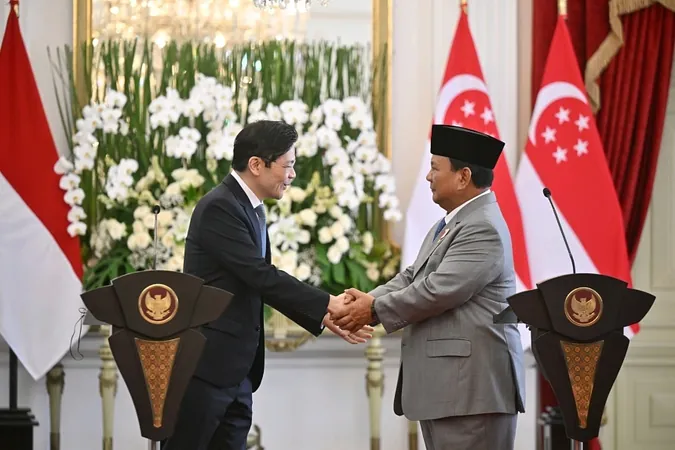
Groundbreaking Discovery Links Ancient Gene Mutation to Disease Vulnerability in Oceania's First Nations Peoples
2024-10-29
Author: Daniel
Groundbreaking Discovery Links Ancient Gene Mutation to Disease Vulnerability in Oceania's First Nations Peoples
In a significant breakthrough, researchers at the University of Colorado have unveiled that a gene variant named KIR3DL1*114, linked to ancient Denisovans, may profoundly impact the immune responses of First Nations peoples in Oceania. Alarmingly, this allele is carried by around 30% of this population, suggesting a potential connection to increased susceptibility to various infectious diseases.
Key Findings:
- The KIR3DL1*114 allele is prevalent among First Nations peoples of Oceania and may alter immune responses. - About 30% of this population is estimated to possess this allele, which could play a crucial role in health outcomes. - This research underscores the influence of ancestral genetics on contemporary health disparities.
According to the lead author, Dr. Paul Norman, a professor of biomedical informatics at the University of Colorado School of Medicine, the study identifies a fascinating and diverse genetic landscape within the Oceania population with the KIR3DL1*114 allele standing out due to its unique origin. Researchers suspect that this allele stems from the Denisovans—a group of archaic humans who shared the planet with early modern humans but eventually went extinct.
The collaborative study includes contributions from scientists in Australia, Papua New Guinea, Mexico, and the United Kingdom and is published in the esteemed journal *Cell*.
Diving deeper into the research, the team traced the lineage of the KIR3DL1*114 allele back to encounters between ancient humans and the Denisovans after their exodus from Africa through Europe and Eurasia. It is believed that First Nations inhabitants of regions such as Australia, New Guinea, and the Solomon Islands assimilated this genetic trait during their migrations.
This ancient gene variant could markedly affect how these populations respond to infections, potentially contributing to harsher outcomes during infectious disease outbreaks like influenza. The study emphasizes that KIR3DL1*114 may hinder natural killer (NK) cell activity—an essential part of the body's immune defense system—but the exact implications for contemporary health are still under investigation.
Dr. Norman mentioned, “While this allele seems to inhibit immune response, we still need to unravel whether it aids or obstructs the body's defense mechanisms against specific diseases.”
The study's results reveal that roughly five million individuals in Oceania, about 30% of the First Nations population, carry this allele. The findings hold significant implications for understanding innate and adaptive immunity, autoimmune disorders, cancer, and potential avenues for immunotherapy.
“This is pioneering work that illustrates a clear function of an archaic gene in the context of modern health. Our ultimate goal is to leverage this knowledge to mitigate health disparities and enhance disease treatment strategies within these communities,” added Dr. Norman.
The study represents a collaborative effort involving immunologists, infectious disease experts, and Indigenous health researchers across various prestigious institutions. This extensive partnership underlines the importance of interdisciplinary approaches in addressing health challenges faced by First Nations peoples.
As this research unfolds, it raises critical questions about the legacy of ancient genes in shaping health outcomes in contemporary populations. Will advancements in medical science provide solutions to the vulnerabilities exposed by these genetic findings? Only time will tell.
For further insights, readers are encouraged to stay tuned for upcoming discussions around this captivating intersection of ancient genetics and modern-day health disparities.




 Brasil (PT)
Brasil (PT)
 Canada (EN)
Canada (EN)
 Chile (ES)
Chile (ES)
 España (ES)
España (ES)
 France (FR)
France (FR)
 Hong Kong (EN)
Hong Kong (EN)
 Italia (IT)
Italia (IT)
 日本 (JA)
日本 (JA)
 Magyarország (HU)
Magyarország (HU)
 Norge (NO)
Norge (NO)
 Polska (PL)
Polska (PL)
 Schweiz (DE)
Schweiz (DE)
 Singapore (EN)
Singapore (EN)
 Sverige (SV)
Sverige (SV)
 Suomi (FI)
Suomi (FI)
 Türkiye (TR)
Türkiye (TR)